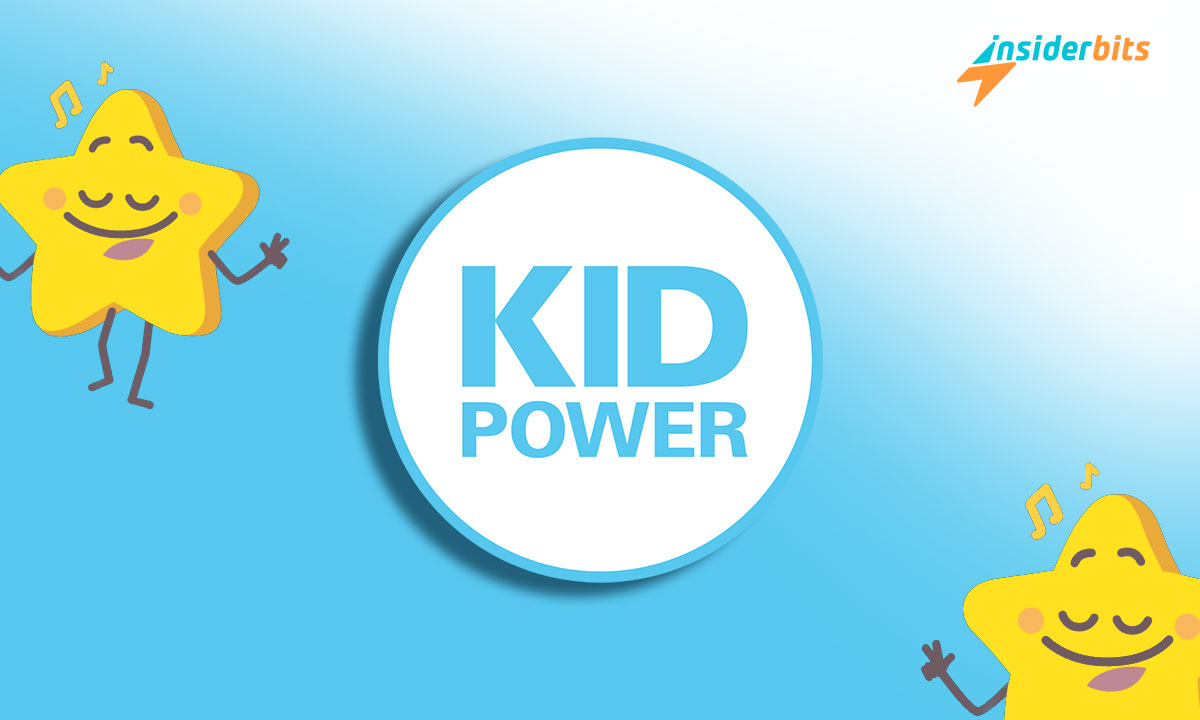If you are an educator looking for a free pedagogy course, you have come to the right place. Today, we present you with a great option to enhance your knowledge. At the same time, you will be able to support students with dyslexia efficiently.
Through this training, you can address dyslexia in the classroom and implement innovative and actual pedagogical practices. From Insiderbits, we invite you to explore the path curriculum, registration process, and other elements of great interest. Don’t miss it!
Pedagogy practices around dyslexia: Free pedagogy course
Before discussing the free pedagogy course, it is essential to highlight that dyslexia is a learning disorder. It makes reading difficult due to problems in identifying speech sounds. Also, it is related to letters and words.
In this sense, you will be able to comprehend dyslexia in depth in this training. In addition, you will be able to create didactic techniques that meet the needs of students with this disorder.
Topics you learn in the free pedagogy course
It provides a whole study of dyslexia and its principles. This way, you will be able to focus your support to students. We will now address the topics that you will study with such training and what you will learn; let’s see:
- Concept of pedagogy. Explanation of what pedagogy is and its relevance in the educational sector.
- The importance of pedagogy. We will discuss why developing operative teaching strategies is essential.
- Lesson design. Creating lessons that provoke valuable learning in students.
- Appropriate teaching approaches. You will analyze and select teaching methods based on pedagogical studies.
- Improving methods. You will understand how educators can enhance their teaching methods using intelligent training.
- Types of dyslexia. You will learn about the diverse types of dyslexia and their characteristics.
- Symptoms of the disorder. You will learn to identify the symptoms of dyslexia in pupils.
- Diagnosing dyslexia. You will learn how to diagnose dyslexia in the school environment.
- Teaching systems for dyslexic scholars. You will discover how to select and apply specific techniques to help people with dyslexia.
These points will undoubtedly allow you to enhance your skills, making it easier to help students successfully.
What are the modules to study?
The structure of this program consists of two main modules, as you will see below.
First module: Pedagogy and Dyslexia
This module aims to present you with the fundamental values of pedagogy and their application to students with dyslexia. You will understand the significance of adjusting pedagogical strategies to improve student support.
It will encompass a comprehensive exploration of various methods and techniques for effectively adapting teaching approaches to meet these students’ diverse needs better. This module covers the following:
- Introduction to pedagogy. Here, you will study the elementary concepts.
- Preface to dyslexia. In this section, dyslexia will be defined for better understanding.
- Managing dyslexia in school. Strategies and methods for managing dyslexia in the classroom.
- Lesson summary. Recapitulation of the key points learned.
Second module: Evaluation
Here, you will consolidate your knowledge about pedagogy and dyslexia. Once you complete the method, you will obtain a CPD certificate.
Strengths of the path
This program provides educators with various strengths, so we will address the most notable ones below.
Accessibility and cost
- Free. This training is free of cost, making it accessible to anyone interested in improving and enhancing skills without having to worry about costs.
- ऑनलाइन. This method provides flexibility in the study schedule. It can be accessed from anywhere in the world and at any time.
Accreditation
- CPD Certificate. CPD accreditation, or Continuous Professional Development, adds value to the program. This is due to the formal recognition of the skills acquired, and it is also valuable for advancing your professional career.
You can also add your certificate to your resume and share it with employers, thus highlighting your skills.
Comprehensive content
- Complete coverage. Such training covers the introduction to pedagogy and specific methods for teaching students, among other points, to provide effective and practical guidance.
- Specialized approach. Provides in-depth knowledge about dyslexia, types, symptoms, diagnosis, and pedagogical strategies for its management. It is essential for educators who face such challenges in the classroom.
Skill development
- Adaptive teaching. It trains education professionals to design tailored and practical lessons. In this way, they contribute to the improvement and learning experience of students with dyslexia.
- Neurodiversity. It promotes understanding and support for neurodiversity, essential in an inclusive educational environment.
Such elements will help you become an excellent professional and benefit student.
Potential weaknesses of the path
While its strengths are broad and significant, the free pedagogy course also has specific weaknesses, as you will see below.
Depth of topics
- Basic. While this program covers various topics, it does not cover advanced points about dyslexia or modern pedagogical techniques. It can limit its usefulness, especially for those with experience with the topic.
Interaction and practice
- Little interaction. An online path can mean a lack of direct interaction with instructors and peers, decreasing opportunities to discuss interesting points in real-time and get immediate feedback.
- Limited practice. Sometimes, it does not provide enough practical opportunities to put what you have learned into practice in a natural environment.
Assessment and follow-up
- Simple exam. The final exam is simple and may not fully reflect the understanding and applying the concepts studied.
- No constant follow-up. After completing the program, you will not have ongoing follow-up or support to apply new techniques.
Cultural adaptability
- Generality. The concepts taught may be based on specific educational contexts and may not always fit different educational systems or cultures.
However, despite such limitations, this training remains valuable for educators who want to improve their skills. It also allows them to provide their students with meaningful and effective support tools.
What is the registration process for the free pedagogy course?
The registration process for this program is quite simple. To do so, you only have to follow these steps:
- You can go to Alison’s official website or click on this link, which will take you directly to the path.
- Once on the site, click “Sign Up.”
- Proceed to fill in the requested fields: your name, email, and password. Then, press “Sign Up”.

- Next, click on “Start Now,” and that’s it. You will see the modules to study there. To start, click on the link for each topic, which will open to provide you with the desired information.
It is how quick and easy the registration process is. Remember that these methods require 1 to 3 hours of learning and end with the final evaluation. Once you pass it, you will be given the corresponding certificate.
Tips to make the most of the path
To get the most out of the free pedagogy course, consider the following tips:
Organize your study time.
- Create a schedule. Organize the time you will study to maintain a continuous and compelling rhythm.
- Set objectives. Divide the study material as you consider convenient and determine what you will study weekly to complete it effectively.
Participate as much as you can
- Take notes. While you take the program, please write down the relevant points of the topic; this will allow you to remember them and review them for your final exam.
- Ask questions. Ask the instructor anything you do not understand to clarify any critical point.
Put into practice what you have learned.
- Practical projects. If possible, create lessons or activities based on what you have learned and put them into practice in the classroom.
- Simulations. Use hypothetical or actual cases to conduct diagnostic simulations and teaching method strategies for students with dyslexia.
Connect with other students
- Social networks. Join social network groups or forums related to pedagogy and dyslexia. Sharing different points of view and experiences will enrich your knowledge in the area.
- Virtual study groups. You can join or organize a virtual study group to discuss dyslexia-related topics with other participants.
Additional resources
- Complementary readings. Don’t just stick to the information in the path. Look for books and articles related to the topic and expand your knowledge to complement what you learned in the free pedagogy course.
- Videos and webinars. Discover educational videos and webinars that delve deeper into the topics covered in the workshop.
Take advantage of the certification
- Add your certificate. When you finish the program, don’t forget to add your certificate to your resume and other professional profiles, such as LinkedIn.
- Share with potential employers. Show your certification to important employers, thus demonstrating your commitment to professional development.
Taking advantage of the paths requires a proactive and committed approach. At all times, plan your time, apply everything you have learned, and seek further feedback.
Finally, this workshop will help you become an excellent professional. In turn, this will allow you to help many students who require new, effective, and compassionate strategies so that they, too, can exploit their potential.
The ideal path for educators
As we have been saying, the free pedagogy course is an excellent alternative for educators who want to improve their classroom strategies. It is also a fantastic alternative for those who wish to support their dyslexic students. Through a complete and practical perspective, this workshop offers the necessary tools for you to help students.
So don’t wait any longer and take advantage of this great opportunity. From इनसाइडरबिट्स, we invite you to sign up and start transforming your classroom. We also recommend other time management paths that will help you professionally.





